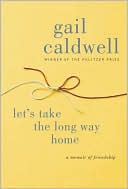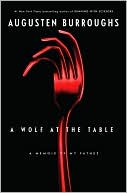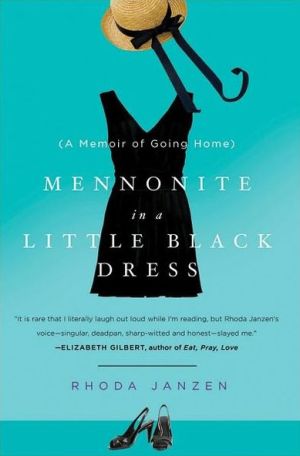The Year of Magical Thinking
From one of America’s iconic writers, a stunning book of electric honesty and passion. Joan Didion explores an intensely personal yet universal experience: a portrait of a marriage—and a life, in good times and bad—that will speak to anyone who has ever loved a husband or wife or child.\ \ \ Winner of the 2005 National Book Award for Nonfiction\
Search in google:
Didion's journalistic skills are displayed as never before in this story of a year in her life that began with her daughter in a medically induced coma and her husband unexpectedly dead due to a heart attack. This powerful and moving work is Didion's "attempt to make sense of the weeks and then months that cut loose any fixed idea I ever had about death, about illness . . . about marriage and children and memory . . . about the shallowness of sanity, about life itself." With vulnerability and passion, Joan Didion explores an intensely personal yet universal experience of love and loss. THE YEAR OF MAGICAL THINKING will speak directly to anyone who has ever loved a husband, wife, or child. The Washinton Post - Jonathan Yardley The Year of Magical Thinking, though it spares nothing in describing Didion's confusion, grief and derangement, is a work of surpassing clarity and honesty. It may not provide "meaning" to her husband's death or her daughter's illness, but it describes their effects on her with unsparing candor. It was not written as a self-help handbook for the bereaved but as a journey into a place that none of us can fully imagine until we have been there.
Chapter 1\ 1.\ Life changes fast.\ Life changes in the instant.\ You sit down to dinner and life as you know it ends.\ The question of self-pity.\ Those were the first words I wrote after it happened. The computer dating on the Microsoft Word file (“Notes on change.doc”) reads “May 20, 2004, 11:11 p.m.,” but that would have been a case of my opening the file and reflexively pressing save when I closed it. I had made no changes to that file in May. I had made no changes to that file since I wrote the words, in January 2004, a day or two or three after the fact.\ For a long time I wrote nothing else.\ Life changes in the instant.\ The ordinary instant.\ At some point, in the interest of remembering what seemed most striking about what had happened, I considered adding those words, “the ordinary instant.” I saw immediately that there would be no need to add the word “ordinary,” because there would be no forgetting it: the word never left my mind. It was in fact the ordinary nature of everything preceding the event that prevented me from truly believing it had happened, absorbing it, incorporating it, getting past it. I recognize now that there was nothing unusual in this: confronted with sudden disaster we all focus on how unremarkable the circumstances were in which the unthinkable occurred, the clear blue sky from which the plane fell, the routine errand that ended on the shoulder with the car in flames, the swings where the children were playing as usual when the rattlesnake struck from the ivy. “He was on his way home from work—happy, successful, healthy—and then, gone,” I read in the account of a psychiatric nurse whose husband was killed in a highway accident. In 1966 I happened to interview many people who had been living in Honolulu on the morning of December 7, 1941; without exception, these people began their accounts of Pearl Harbor by telling me what an “ordinary Sunday morning” it had been. “It was just an ordinary beautiful September day,” people still say when asked to describe the morning in New York when American Airlines 11 and United Airlines 175 got flown into the World Trade towers. Even the report of the 9/11 Commission opened on this insistently premonitory and yet still dumbstruck narrative note: “Tuesday, September 11, 2001, dawned temperate and nearly cloudless in the eastern United States.”\ “And then—gone.” In the midst of life we are in death, Episcopalians say at the graveside. Later I realized that I must have repeated the details of what happened to everyone who came to the house in those first weeks, all those friends and relatives who brought food and made drinks and laid out plates on the dining room table for however many people were around at lunch or dinner time, all those who picked up the plates and froze the leftovers and ran the dishwasher and filled our (I could not yet think my) otherwise empty house even after I had gone into the bedroom (our bedroom, the one in which there still lay on a sofa a faded terrycloth XL robe bought in the 1970s at Richard Carroll in Beverly Hills) and shut the door. Those moments when I was abruptly overtaken by exhaustion are what I remember most clearly about the first days and weeks. I have no memory of telling anyone the details, but I must have done so, because everyone seemed to know them. At one point I considered the possibility that they had picked up the details of the story from one another, but immediately rejected it: the story they had was in each instance too accurate to have been passed from hand to hand. It had come from me.\ Another reason I knew that the story had come from me was that no version I heard included the details I could not yet face, for example the blood on the living room floor that stayed there until José came in the next morning and cleaned it up.\ José. Who was part of our household. Who was supposed to be flying to Las Vegas later that day, December 31, but never went. José was crying that morning as he cleaned up the blood. When I first told him what had happened he had not understood. Clearly I was not the ideal teller of this story, something about my version had been at once too offhand and too elliptical, something in my tone had failed to convey the central fact in the situation (I would encounter the same failure later when I had to tell Quintana), but by the time José saw the blood he understood.\ I had picked up the abandoned syringes and ECG electrodes before he came in that morning but I could not face the blood.\ In outline.\ It is now, as I begin to write this, the afternoon of October 4, 2004.\ Nine months and five days ago, at approximately nine o’clock on the evening of December 30, 2003, my husband, John Gregory Dunne, appeared to (or did) experience, at the table where he and I had just sat down to dinner in the living room of our apartment in New York, a sudden massive coronary event that caused his death. Our only child, Quintana, had been for the previous five nights unconscious in an intensive care unit at Beth Israel Medical Center’s Singer Division, at that time a hospital on East End Avenue (it closed in August 2004) more commonly known as “Beth Israel North” or “the old Doctors’ Hospital,” where what had seemed a case of December flu sufficiently severe to take her to an emergency room on Christmas morning had exploded into pneumonia and septic shock. This is my attempt to make sense of the period that followed, weeks and then months that cut loose any fixed idea I had ever had about death, about illness, about probability and luck, about good fortune and bad, about marriage and children and memory, about grief, about the ways in which people do and do not deal with the fact that life ends, about the shallowness of sanity, about life itself. I have been a writer my entire life. As a writer, even as a child, long before what I wrote began to be published, I developed a sense that meaning itself was resident in the rhythms of words and sentences and paragraphs, a technique for withholding whatever it was I thought or believed behind an increasingly impenetrable polish. The way I write is who I am, or have become, yet this is a case in which I wish I had instead of words and their rhythms a cutting room, equipped with an Avid, a digital editing system on which I could touch a key and collapse the sequence of time, show you simultaneously all the frames of memory that come to me now, let you pick the takes, the marginally different expressions, the variant readings of the same lines. This is a case in which I need more than words to find the meaning. This is a case in which I need whatever it is I think or believe to be penetrable, if only for myself.\ 2.\ December 30, 2003, a Tuesday.\ We had seen Quintana in the sixth-floor ICU at Beth Israel North.\ We had come home.\ We had discussed whether to go out for dinner or eat in.\ I said I would build a fire, we could eat in.\ I built the fire, I started dinner, I asked John if he wanted a drink.\ I got him a Scotch and gave it to him in the living room, where he was reading in the chair by the fire where he habitually sat.\ The book he was reading was by David Fromkin, a bound galley of Europe’s Last Summer: Who Started the Great War in 1914?\ I finished getting dinner, I set the table in the living room where, when we were home alone, we could eat within sight of the fire. I find myself stressing the fire because fires were important to us. I grew up in California, John and I lived there together for twenty-four years, in California we heated our houses by building fires. We built fires even on summer evenings, because the fog came in. Fires said we were home, we had drawn the circle, we were safe through the night. I lit the candles. John asked for a second drink before sitting down. I gave it to him. We sat down. My attention was on mixing the salad.\ John was talking, then he wasn’t.\ At one point in the seconds or minute before he stopped talking he had asked me if I had used single-malt Scotch for his second drink. I had said no, I used the same Scotch I had used for his first drink. “Good,” he had said. “I don’t know why but I don’t think you should mix them.” At another point in those seconds or that minute he had been talking about why World War One was the critical event from which the entire rest of the twentieth century flowed.\ I have no idea which subject we were on, the Scotch or World War One, at the instant he stopped talking.\ I only remember looking up. His left hand was raised and he was slumped motionless. At first I thought he was making a failed joke, an attempt to make the difficulty of the day seem manageable.\ I remember saying Don’t do that.\ When he did not respond my first thought was that he had started to eat and choked. I remember trying to lift him far enough from the back of the chair to give him the Heimlich. I remember the sense of his weight as he fell forward, first against the table, then to the floor. In the kitchen by the telephone I had taped a card with the New York–Presbyterian ambulance numbers. I had not taped the numbers by the telephone because I anticipated a moment like this. I had taped the numbers by the telephone in case someone in the building needed an ambulance.\ Someone else.\ I called one of the numbers. A dispatcher asked if he was breathing. I said Just come. When the paramedics came I tried to tell them what had happened but before I could finish they had transformed the part of the living room where John lay into an emergency department. One of them (there were three, maybe four, even an hour later I could not have said) was talking to the hospital about the electrocardiogram they seemed already to be transmitting. Another was opening the first or second of what would be many syringes for injection. (Epinephrine? Lidocaine? Procainamide? The names came to mind but I had no idea from where.) I remember saying that he might have choked. This was dismissed with a finger swipe: the airway was clear. They seemed now to be using defibrillating paddles, an attempt to restore a rhythm. They got something that could have been a normal heartbeat (or I thought they did, we had all been silent, there was a sharp jump), then lost it, and started again.\ “He’s still fibbing,” I remember the one on the telephone saying.\ “V-fibbing,” John’s cardiologist said the next morning when he called from Nantucket. “They would have said ‘V-fibbing.’ V for ventricular.”\ Maybe they said “V-fibbing” and maybe they did not. Atrial fibrillation did not immediately or necessarily cause cardiac arrest. Ventricular did. Maybe ventricular was the given.\ I remember trying to straighten out in my mind what would happen next. Since there was an ambulance crew in the living room, the next logical step would be going to the hospital. It occurred to me that the crew could decide very suddenly to go to the hospital and I would not be ready. I would not have in hand what I needed to take. I would waste time, get left behind. I found my handbag and a set of keys and a summary John’s doctor had made of his medical history. When I got back to the living room the paramedics were watching the computer monitor they had set up on the floor. I could not see the monitor so I watched their faces. I remember one glancing at the others. When the decision was made to move it happened very fast. I followed them to the elevator and asked if I could go with them. They said they were taking the gurney down first, I could go in the second ambulance. One of them waited with me for the elevator to come back up. By the time he and I got into the second ambulance the ambulance carrying the gurney was pulling away from the front of the building. The distance from our building to the part of New York–Presbyterian that used to be New York Hospital is six crosstown blocks. I have no memory of sirens. I have no memory of traffic. When we arrived at the emergency entrance to the hospital the gurney was already disappearing into the building. A man was waiting in the driveway. Everyone else in sight was wearing scrubs. He was not. “Is this the wife,” he said to the driver, then turned to me. “I’m your social worker,” he said, and I guess that is when I must have known.\ I opened the door and I seen the man in the dress greens and I knew. I immediately knew.” This was what the mother of a nineteen-year-old killed by a bomb in Kirkuk said on an HBO documentary quoted by Bob Herbert in The New York Times on the morning of November 12, 2004. “But I thought that if, as long as I didn’t let him in, he couldn’t tell me. And then it—none of that would’ve happened. So he kept saying, ‘Ma’am, I need to come in.’ And I kept telling him, ‘I’m sorry, but you can’t come in.’ ”\ When I read this at breakfast almost eleven months after the night with the ambulance and the social worker I recognized the thinking as my own.\ Inside the emergency room I could see the gurney being pushed into a cubicle, propelled by more people in scrubs. Someone told me to wait in the reception area. I did. There was a line for admittance paperwork. Waiting in the line seemed the constructive thing to do. Waiting in the line said that there was still time to deal with this, I had copies of the insurance cards in my handbag, this was not a hospital I had ever negotiated—New York Hospital was the Cornell part of New York–Presbyterian, the part I knew was the Columbia part, Columbia-Presbyterian, at 168th and Broadway, twenty minutes away at best, too far in this kind of emergency—but I could make this unfamiliar hospital work, I could be useful, I could arrange the transfer to Columbia-Presbyterian once he was stabilized. I was fixed on the details of this imminent transfer to Columbia (he would need a bed with telemetry, eventually I could also get Quintana transferred to Columbia, the night she was admitted to Beth Israel North I had written on a card the beeper numbers of several Columbia doctors, one or another of them could make all this happen) when the social worker reappeared and guided me from the paperwork line into an empty room off the reception area. “You can wait here,” he said. I waited. The room was cold, or I was. I wondered how much time had passed between the time I called the ambulance and the arrival of the paramedics. It had seemed no time at all (a mote in the eye of God was the phrase that came to me in the room off the reception area) but it must have been at the minimum several minutes.
\ From Barnes & NobleDuring the Christmas holidays in 2003, novelist Joan Didion began a month of hell. Just a few days before Christmas, Didion and her husband of 40 years, John Gregory Dunne, watched helplessly as their newly married daughter, Quintana, came down with what seemed to be the flu, then contracted pneumonia, which led, within days, to complete septic shock and system breakdown. A week later, as Quintana hovered close to death, Dunne collapsed and died. Didion plunged into a mad state of "magical thinking." Her response was unfathomable: "We might expect that we will be prostrate, inconsolable, crazy with loss. We do not expect to be literally crazy, cool customers who believe that their husband is about to return and might need his shoes." A mourning no one could ever imagine.\ \ \ \ \ Robert PinskyThough the material is literally terrible, the writing is exhilarating and what unfolds resembles an adventure narrative…As in Didion's previous writing, her sense of timing, sentence by sentence and in the arrangement of scenes, draws the reader forward. Her manner is deadpan funny, slicing away banality with an air that is ruthless yet meticulous.\ —The New York Times Book Review\ \ \ Michiko KakutaniIn her devastating new book, The Year of Magical Thinking, Ms. Didion writes about the year she spent trying to come to terms with what happened that terrible December…It is an utterly shattering book that gives the reader an indelible portrait of loss and grief and sorrow, all chronicled in minute detail with the author's unwavering, reportorial eye.\ — The New York Times\ \ \ \ \ Jonathan YardleyThe Year of Magical Thinking, though it spares nothing in describing Didion's confusion, grief and derangement, is a work of surpassing clarity and honesty. It may not provide "meaning" to her husband's death or her daughter's illness, but it describes their effects on her with unsparing candor. It was not written as a self-help handbook for the bereaved but as a journey into a place that none of us can fully imagine until we have been there.\ — The Washinton Post\ \ \ \ \ Library JournalOn December 30, 2003, Didion witnessed the death of her husband, John Gregory Dunne, from a massive coronary in their living room. The couple had just returned home after visiting their daughter, Quintana, who had been hospitalized and placed on life support several days earlier, diagnosed with a severe case of septic shock. Several weeks later, their daughter recovered, only to collapse two months later from a massive hematoma that required emergency brain surgery and an arduous recovery. (Quintana Roo Dunne Michael died on August 26, 2005.) This work is both a memoir of Didion's family life and a meditation chronicling the course of her grief. Throughout this account she describes her attempts to study grief, reading extensively on the topic because "information was control." While the events and emotions disclosed are tragic and uncomfortable, the author's description of her relationship with her husband and daughter lend beauty to the tragedy. With a wonderfully emotional yet controlled narration provided by Barabara Caruso, this program is a worthwhile listening experience. Appropriate for adult audiences and recommended for all audiobook collections.-Dawn Eckenrode, Daniel A. Reed Lib., SUNY-Fredonia Copyright 2005 Reed Business Information.\ \ \ \ \ Kirkus ReviewsA moving record of Didion's effort to survive the death of her husband and the near-fatal illness of her only daughter. In late December 2003, Didion (Where I Was From, 2003, etc.) saw her daughter, Quintana Roo Dunne, hospitalized with a severe case of pneumonia, the lingering effects of which would threaten the young woman's life for several months to come. As her daughter struggled in a New York ICU, Didion's husband, John Gregory Dunne, suffered a massive heart attack and died on the night of December 30, 2003. For 40 years, Didion and Dunne shared their lives and work in a marriage of remarkable intimacy and endurance. In the wake of Dunne's death, Didion found herself unable to accept her loss. By "magical thinking," Didion refers to the ruses of self-deception through which the bereaved seek to shield themselves from grief-being unwilling, for example, to donate a dead husband's clothes because of the tacit awareness that it would mean acknowledging his final departure. As a poignant and ultimately doomed effort to deny reality through fiction, that magical thinking has much in common with the delusions Didion has chronicled in her several previous collections of essays. But perhaps because it is a work of such intense personal emotion, this memoir lacks the mordant bite of her earlier work. In the classics Slouching Toward Bethlehem (1968) and The White Album (1979), Didion linked her personal anxieties to her withering dissection of a misguided culture prey to its own self-gratifying fantasies. This latest work concentrates almost entirely on the author's personal suffering and confusion-even her husband and daughter make but fleeting appearances-without connecting them to thelarger public delusions that have been her special terrain. A potent depiction of grief, but also a book lacking the originality and acerbic prose that distinguished Didion's earlier writing. First printing of 60,000\ \








